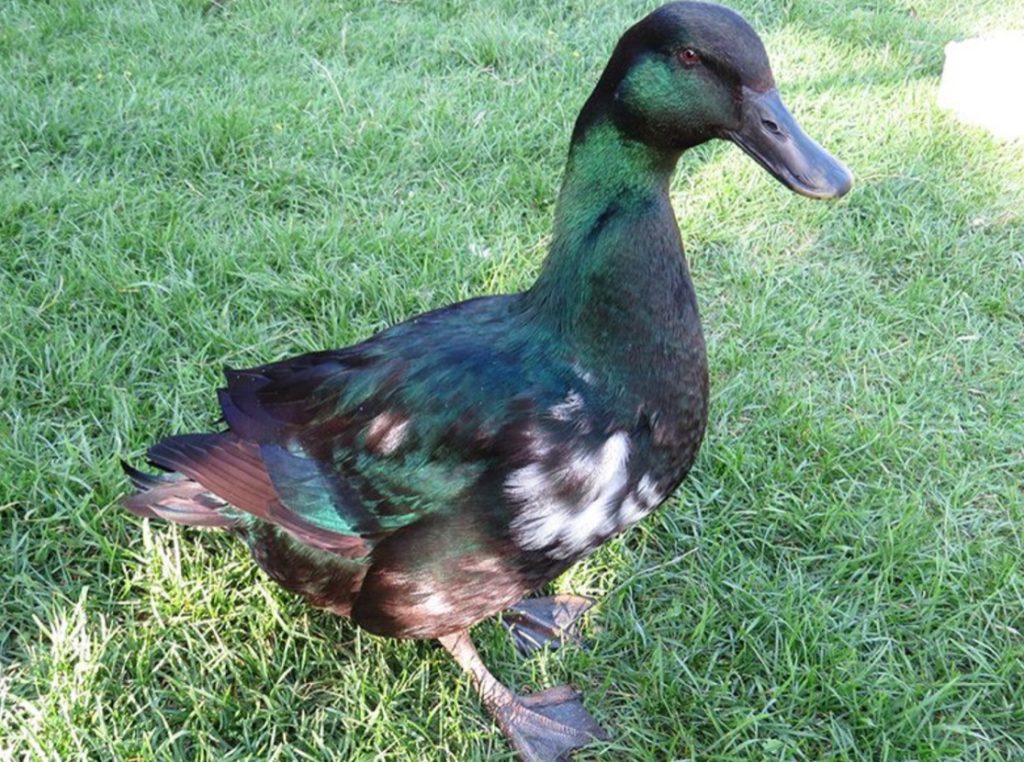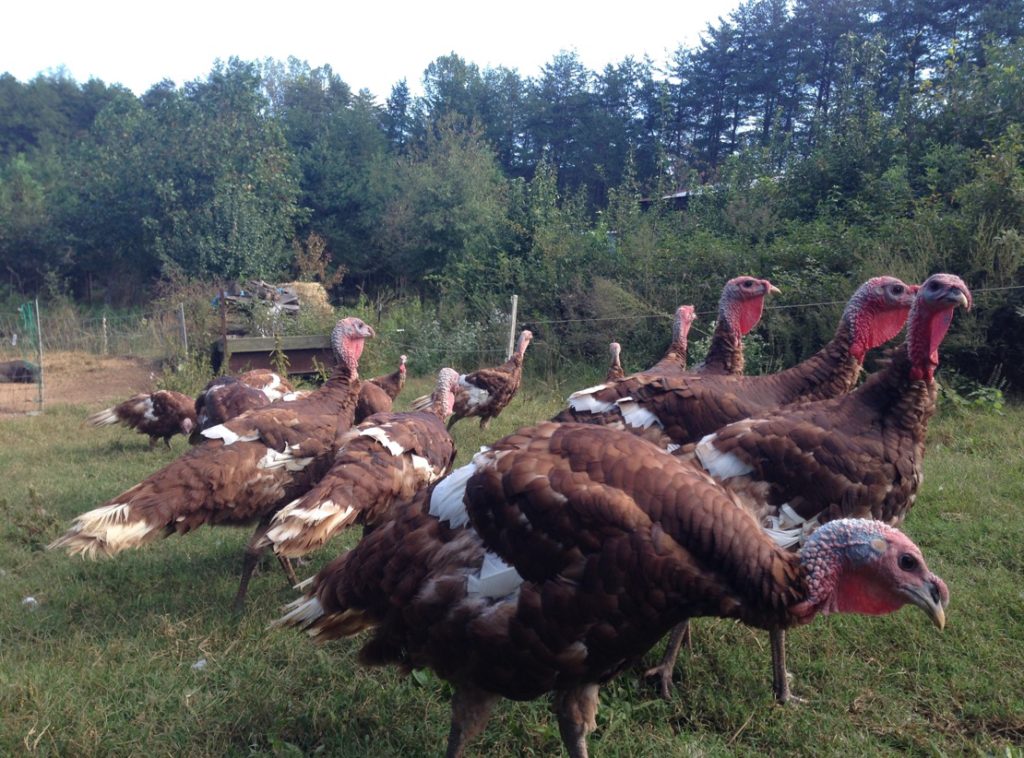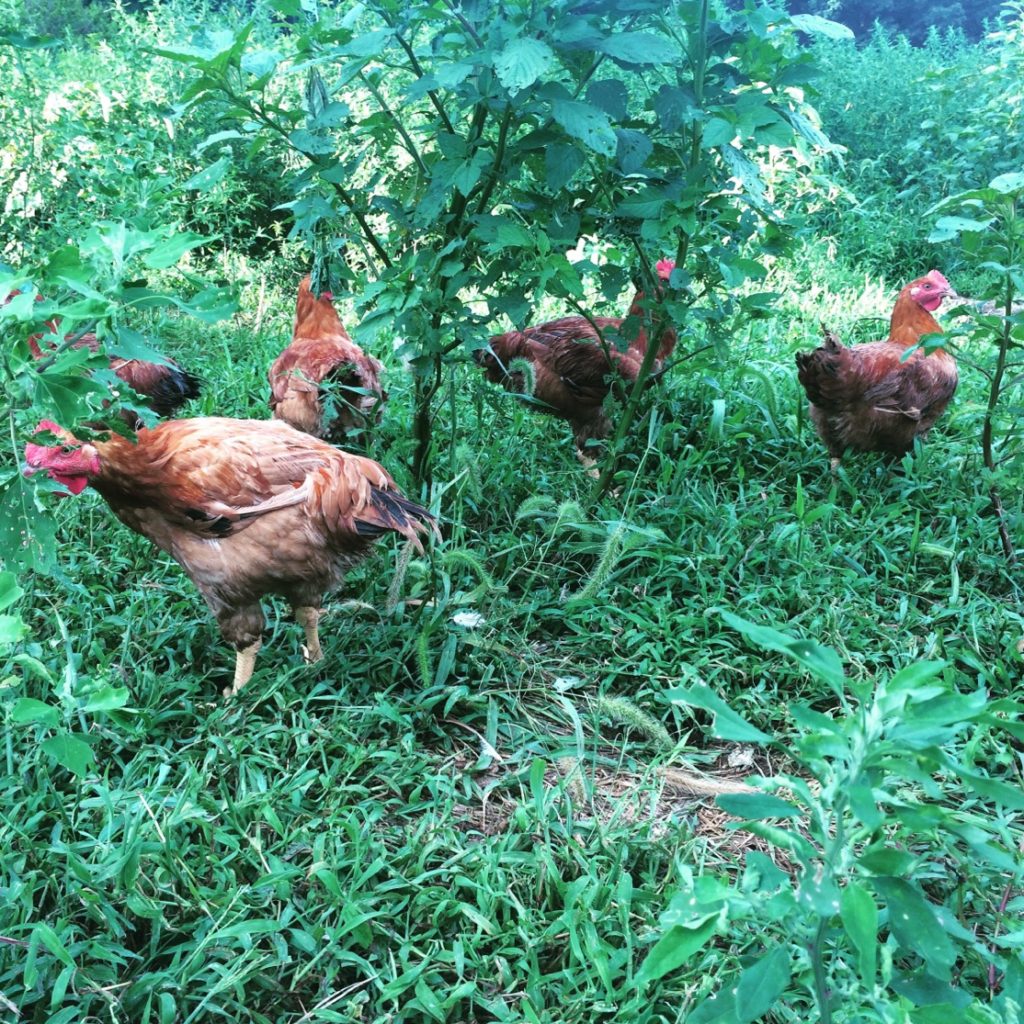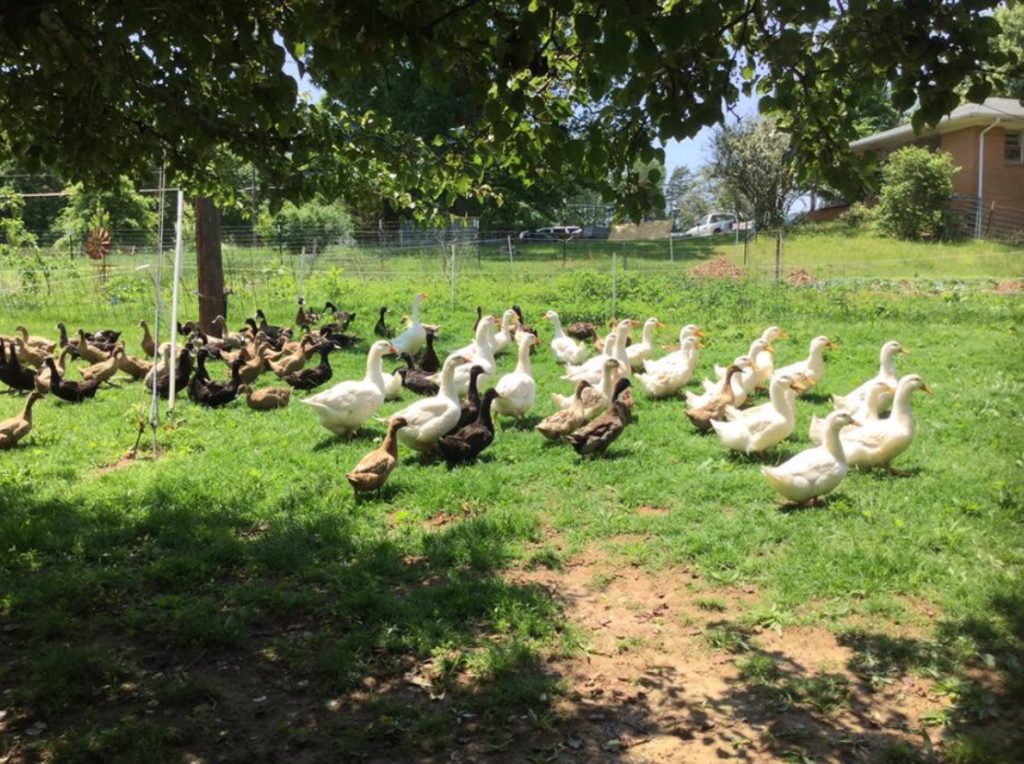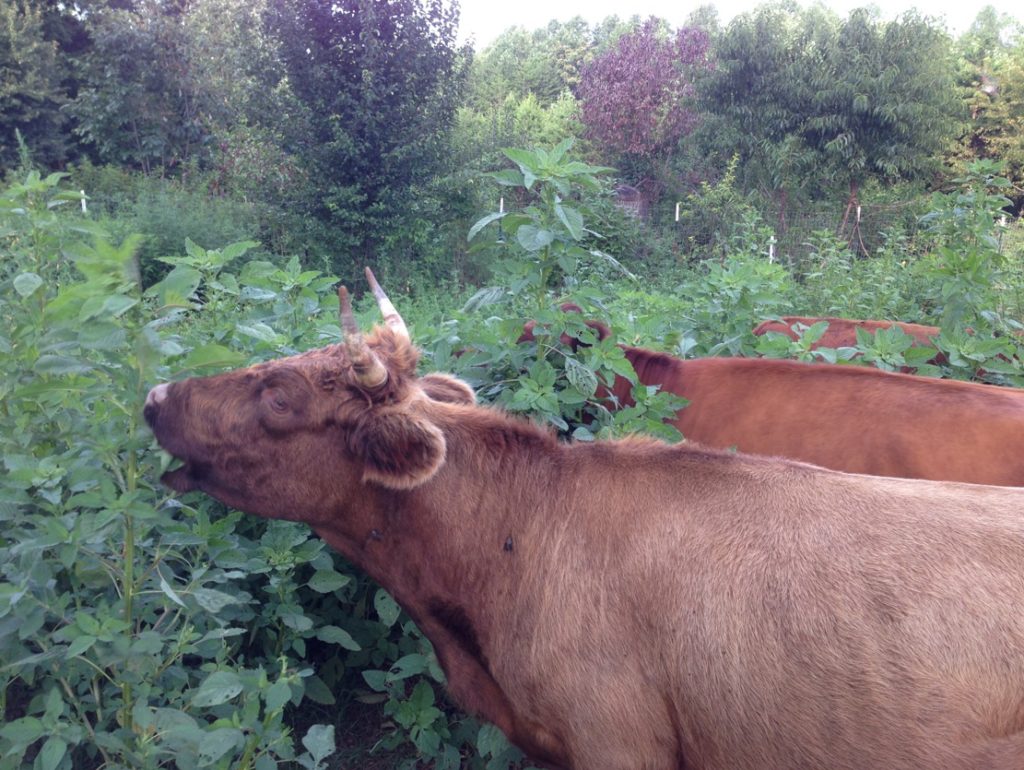When it comes to homesteading, the balance between quality food and cost efficiency is the biggest consideration. Factory farming is a huge industry, and it’s super easy for them to turn a profit since they’re raising low-quality products (in inhumane ways) with very low costs. As small farmers, the balance is more complicated, but also so important. At KW Homestead, from the beginning we made the decision that raising quality meat in humane and life-affirming ways was our top priority. Cost-efficiency is not the first thing we think about when we wake up each morning… Our animals’ quality of life is. This sentiment is reflected in the breeds we raise—all slow-growing, hardy, and/or heritage breeds.
In fact, two of the breeds we raise here on our farm are included in the Slow Food USA Ark of Taste: the Bourbon Red turkey and the Cayuga duck. The other breeds we’ve selected have been chosen because of their superior flavor and the health and hardiness of the breed. We’re proud to be your farmily’s farmers, and grateful that you love good food as much as we do! THANK YOU!
Bourbon Red Turkeys
We raise heritage turkeys rather than the standard broad-breasted variety, for many reasons. Heritage turkeys are survival fit and can reproduce naturally (unlike the broad-breasted varieties, which much be inseminated). Their normal size and body shape, much like that of a wild turkey, makes them excellent foragers and runners, allowing us to raise them on pasture and in our woods! Their meat is darker and much richer than a conventional turkey, and their flavor is amazing! The Bourbon Red variety was developed from the Buff, a historic variety of turkey known in the Mid-Atlantic States. It resulted from stocks taken to Kentucky and selected for improved meat production and a darker red color.
Red Ranger Chickens
The Red Ranger is a fast-growing breed that does an excellent job foraging and ranging around. We raise our birds for almost twice as long as most poultry farmers do, because of their hardiness and their developing rich flavor. Their well-balanced and gradual weigh gain makes them healthy enough to live well into adulthood as regular chickens! Most chicken you buy in the store (or even farmer’s markets, for that matter) is a breed called Cornish Cross. These chickens are not a similar picture of health. Cornish Crosses are a super fast-growing breed that can gain more weight than its legs can support. When this happens, they can break their own legs or simply end up too heavy to stand, living out the rest of their lives sitting in one spot. Red Rangers are a hardier breed that does well when raised on pasture, developing a rich, intense flavor unlike any chicken you’ve had before.
Pekin Ducks
The duck breed that we raise on pasture is the Pekin, a large-bodied duck that is likely the breed you’ve eaten when you ordered duck in a restaurant. The Pekin duck yields scrumptious and fatty meat, and also lives life as an average duck if they join our layer flock. Maybe of the ducks from our layer flock are female Pekins who are 2 or 3 years old. Despite their size, they sure do keep us with the little, gracile egg breeds when running to the pond, and they contribute large and delicious eggs to your weekly dozen.
Dexter Cattle
Although we don’t sell beef yet at our market locations, we have a small herd of Dexter cattle on our farm. The Dexter is a smaller-bodied breed that is easier on the land than a larger cow. They are considered a dual purpose breed, which means that they are great for both meat and milk production. Their meat has an excellent, rich flavor, and they are an overall hardy breed. Dexters tends to have less health issues, like the calving issues that sometimes trouble the meat breeds, since they are breed to be so large. Our herd is 5-strong, and ever growing. We have 2 cows, 1 bull, 1 heifer, and 1 bull calf, with more on the way next year.
